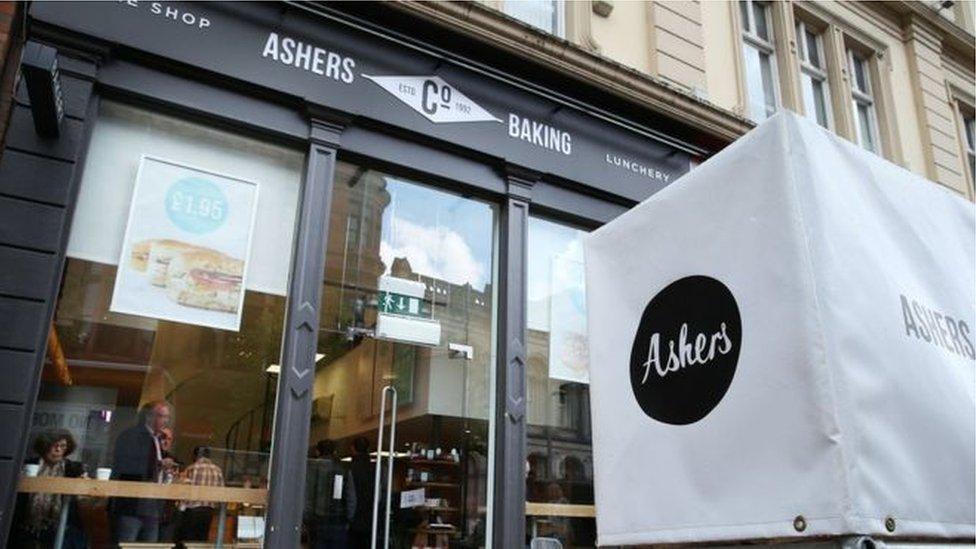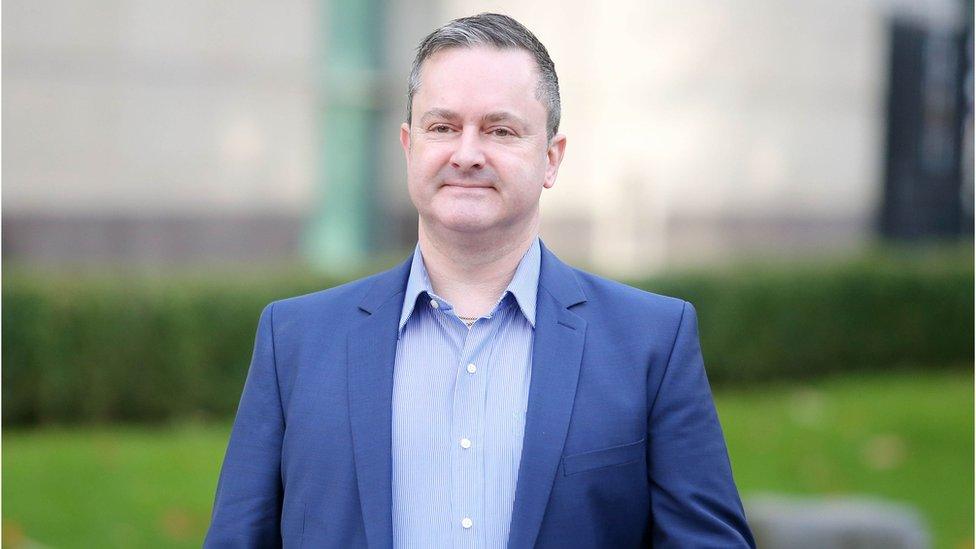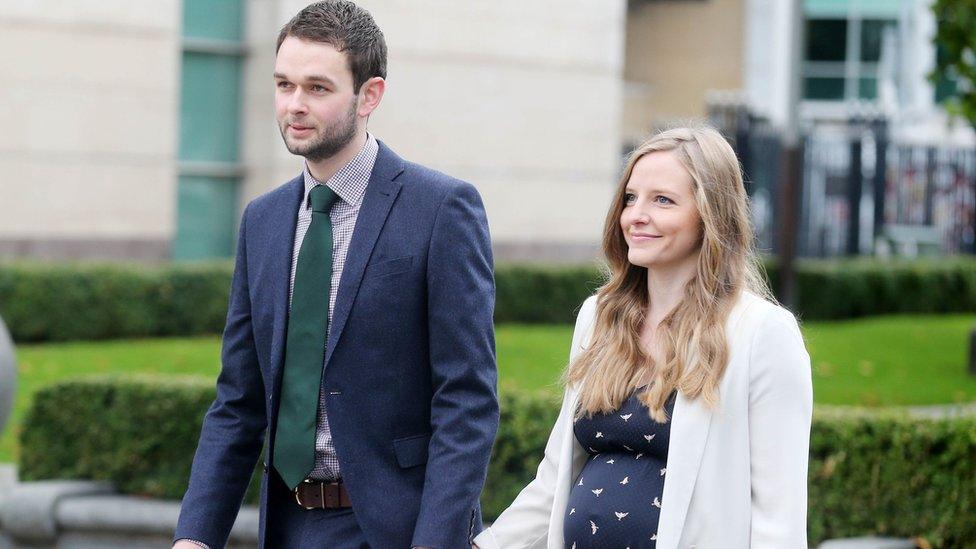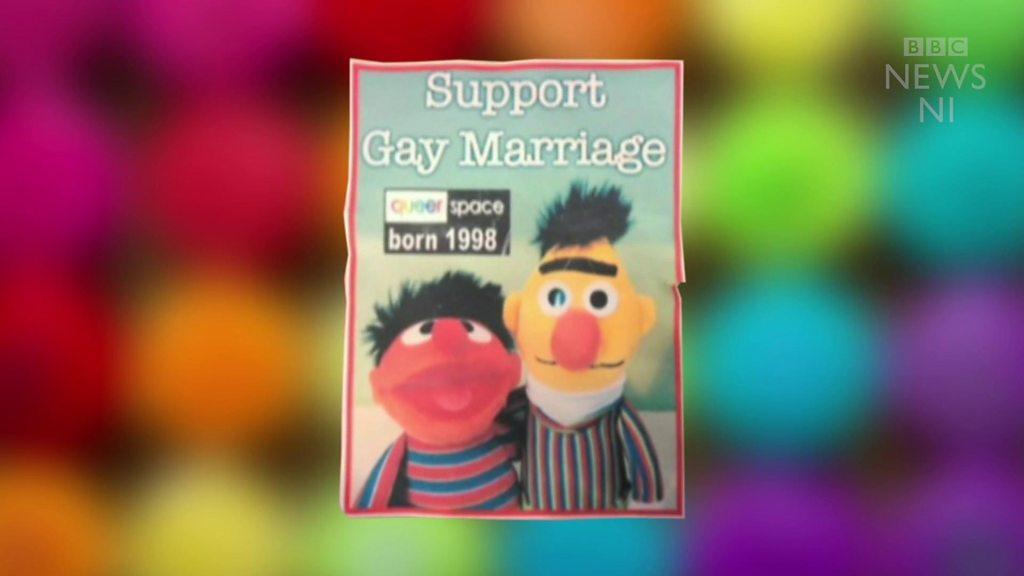'Gay cake' appeal ruling 'surprisingly straightforward'
- Published

Two years ago, gay rights activist Gareth Lee was refused a cake with the slogan "Support Gay Marriage"
After the Court of Appeal in Belfast upheld a finding over Ashers Baking Company, the company's manager, Daniel McArthur, told reporters the case was was not about the man who placed the order - Gareth Lee.
They said it was about the message in support of gay marriage that he had wanted on his cake.
"Now we're being told that we have to promote the message, even if it's against our consciences," Mr McArthur said.
"Other businesses will have to take advice about whether they can refuse orders that conflict with their consciences or whether they have to be coerced as well into promoting other people's views."
But there was nothing in the court's decision requiring Ashers or any other business to promote a view with which the company's directors disagreed.
Ashers can keep within the law and not promote "other people's views" by confining its custom-made service to birthday cakes -- which is what it has said it will do.
A Jewish or Christian shopkeeper is not required to trade on the Sabbath just as a Muslim butcher is not required to sell pork.
But if a business does supply a service, it must not discriminate on grounds of sexual orientation — which means it must not refuse to provide a gay person with goods that it would provide to others.
In this case, said the courts, the correct comparison was not with a straight man who wanted a "gay" cake, which Ashers would have refused.
It was with a gay or straight person who ordered a cake celebrating traditional marriage -- which the company would have supplied.
And, as the appeal judges said, "the fact that a baker provides a cake for a particular team or portrays witches on a Halloween cake does not indicate any support for either."

The case was taken by gay rights activist Gareth Lee
'Surprisingly straightforward'
In the end, the appeal ruling turned out to be surprisingly straightforward.
Had District Judge Brownlie been right as a matter of law to hold that Ashers had discriminated against Mr Lee directly on the grounds of his sexual orientation, contrary to regulations made in 2006?
Yes she had, the appeal judges said.
Had the district judge been right to decide that the regulations were not affected by the McArthur family's rights -- under article 9 of the human rights convention -- to hold and manifest their religious beliefs?
Yes, she had been right about that too.
And had the district judge been wrong to find, without any evidence, that Mr Lee had been perceived by Ashers as a gay man?
That was irrelevant, said the appeal court: Ashers had cancelled Mr Lee's order not because he was perceived as being gay but because the company's directors opposed gay marriage.
It is because the district judge had simply posed a series of questions to the appeal court — what lawyers call an "appeal by way of case stated" — that there may be procedural difficulties in Ashers appealing once more to the UK Supreme Court in London.
One way round these problems might be for the Attorney General of Northern Ireland to seek permission to appeal — either from the court in Belfast or from the Supreme Court itself.
John Larkin QC had argued, unsuccessfully, that the 2006 regulations were discriminatory and therefore unlawful under devolution legislation.
In the end, an appeal may depend on whether the Christian Institute, which has been supporting Ashers, can fund the cost of an appeal — and afford the risk of paying Mr Lee's legal costs if they lose again.

Ashers manager Daniel McArthur argued that the cake's message was against the bakers' religious views
It may also depend on whether the Supreme Court regards this case as having wider implications, not just for people in Northern Ireland but for the rest of the United Kingdom as well.
It is hard to imagine a similar case occurring in any other part of the UK, not just because same-sex marriage is legal in Great Britain but also because it is unusual to find companies operating in the same way as Ashers.
There are plenty of shops and restaurants in Great Britain that sell only kosher or halal food but their religiously-observant owners will normally serve any customer who comes through the door.
That, after all, is what the law requires.
- Published24 October 2016
